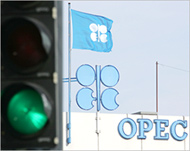Yemen bets on gas export
Yemen, one of the world’s poorest countries in a constant search for alternative resources to its dwindling oil reserves, is hoping for a brighter future with a $2.5 billion gas project.

The dire situation even prompted President Ali Abd Allah Salih to admit recently that “our oil reserves are in danger of running out by 2012 and the government should look for alternative resources to oil”.
Yemen is seeking to exploit and market its gas reserves, currently estimated at about 10.2 trillion cubic feet – which along with the country’s oilfields are located in the region of Marib, east of Sanaa.
But Yemen‘s total gas reserves remain minute when compared to Gulf neighbour Qatar, which has 900 trillion cubic feet.
The $2.5 billion project, the most important in the history of the country, had been planned since 1997, but was delayed owing to the sharp drop in global demand caused by the Asian crisis back then.
Contracts signed
The recent rise in demand, however, encouraged the consortium Yemen LNG, 43% owned by the French company Total, to launch the project after finding potential buyers.
Three contracts were signed in February for the export of between six and seven tonnes of liquified natural gas (LNG) annually to the US and South Korea over 20 years starting in 2009.
 |
|
Yemen is not a member of OPEC |
Under the contracts, Korea Gas Corp (Kogas) will start buying in December 2008 at least 1.3 million tonnes of LNG each year over 20 years, with plans eventually to increase the quantity to two million tonnes.
The US market will absorb the remaining annual quantity of gas output from the project starting May 2009 relayed from Yemen by the Belgian company Tractebel and the French giant Total.
The project involves the construction of a 320km pipeline to transport the gas to a liquifaction factory in Balhaf on the coast of Aden, two liquefaction trains to each transport an annual production of 3.5 million tonnes of LNG, as well as a gas terminal.
No substitute
World Bank representative in Yemen Mustafa Ruis warned that “the gas is not going to be a substitute to the oil resources”.
But Yemen LNG Director General Jean-François Daganaud, a former Total official, said that although the project would not help resolve the country’s ills, “it will give them a push for the next 20 years”.
|
“Imagine a country with no resources and with a rapidly-growing population. It is worrying for all western states, Jean-Francois Daganaud, |
“If this project is not implemented … in the next few years, there will be no more revenues. Imagine a country with no resources and with a rapidly growing population. It is worrying for all Western states,” he said.
With a population of more than 20 million people, Yemen is not a member of the Organisation of Petroleum Exporting Countries and has a small production of about 380,000 barrels per day, according to Deputy Prime Minister and Planning Minister Ahmad Muhammad Sufan.
As modest as the production may be when compared to other world producers, more than half of the oil produced is exported. It represents more than 90% of Yemen‘s export revenues and more than 70% of budget revenues.